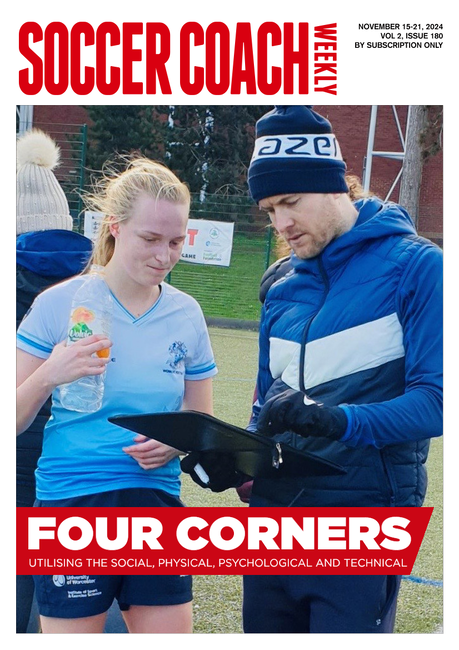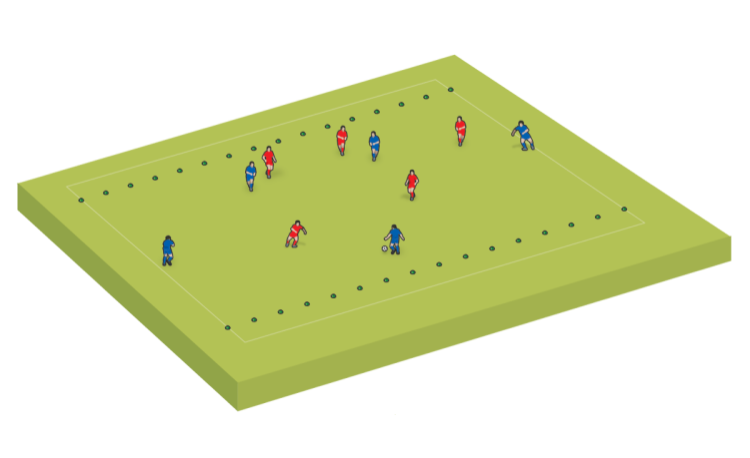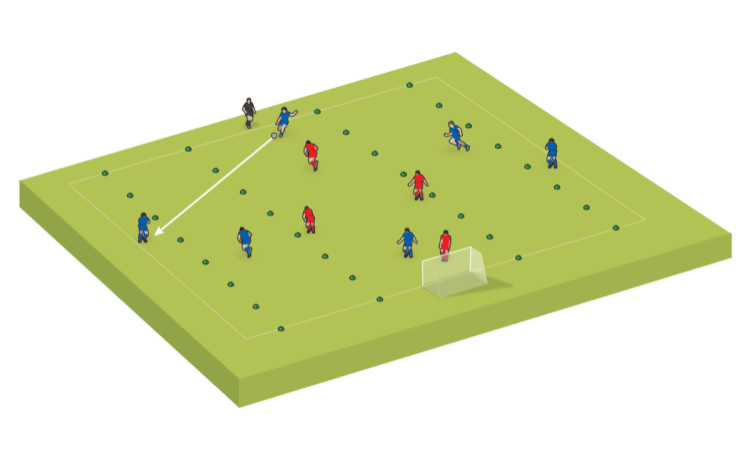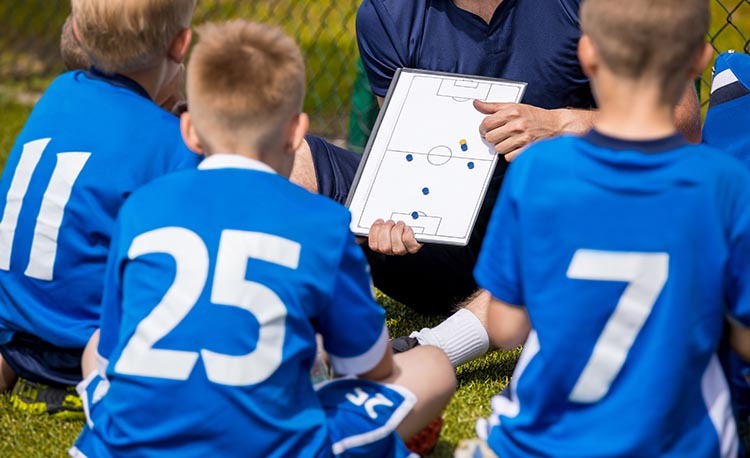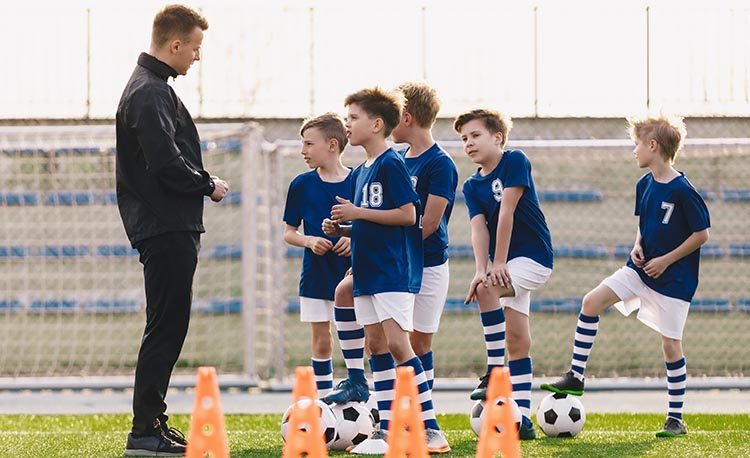How to keep substitutes fully engaged on the bench
Those not starting the game can still be involved, by analysing team-mates and opponents and taking responsibility for equipment.
On a matchday, all players – whether on the field or sat on the sidelines, waiting to come on – deserve to have a great experience.
Whether we are able to use rolling substitutes, or they are on the pitch one time only, we want our subs (or ’game-changers’, as many call them) to feel as valued and as part of the game as those who start.
Those on the bench must get as much opportunity for learning and development as the players actively participating.
It’s our job as coaches to make that possible. It is also really helpful to us. Having a subs bench which is cared for, focused and engaged will make our lives a lot easier.
It means we won’t have to do as much off-pitch management, fielding questions such as "When am I coming on?" or "Who am I going on for?".
Here are some ideas to give your substitutes the best possible experience.
Ask them to analyse the match
Get them to watch the match and ask them to consider how it’s going.
You can help to frame their thinking with some prompt questions, such as:
- What are we doing well?
- What could we be doing better?
- Are we achieving the goals we set out before the game?
- Where on the pitch is most of the play happening?
- When we attack, what does our shape look like?
- When we defend, what does our shape look like?
- What shape is the other team set up in?
- Who is the other team’s most dangerous player?
- Which areas can we look to exploit the other team in?
Don’t use all of those at once – pick a few and tweak them as needed for your players.
If you have got a whiteboard, the players can use it to move markers around and make notes.
Use the players’ feedback to inform the messages you give to the rest of the team at half time or during breaks in play.
Ask them to analyse the player they are going to replace
If you know which player the substitute is going to replace, tell them in advance to allow them to prepare.
Ask them to consider how this player is performing – what they are doing well and what they could be doing better.
Get them thinking about the opponent this player is up against in 1v1 duels, as well. What are the strengths and weaknesses of this opponent?
The player can use the answers to these questions to inform how they want to approach the game when they get on the field.
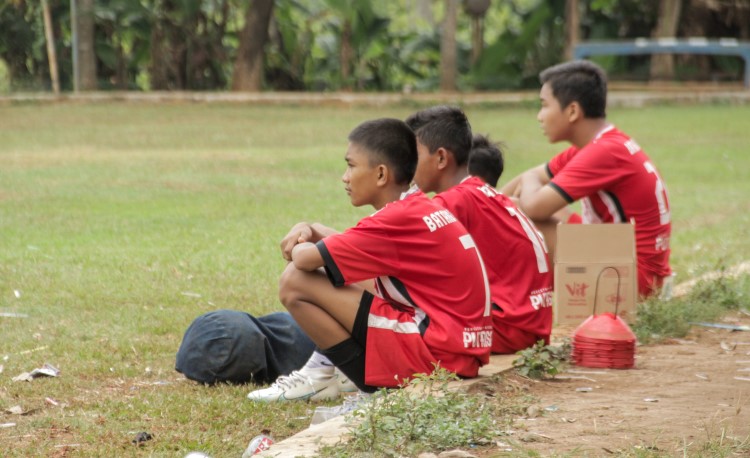
Ask them to analyse their own performance
If they have been substituted off, get them thinking about what their experience on the field was like.
What do they think they did well? What would they have liked to have done better? What did they find challenging? How do they think the game is going in general?
Where you are playing in a competition that allows rolling substitutes, this information can be used to help them if they return to the pitch later on in the game. If they don’t or can’t, it can be used to support other players in a similar position.
This player can also ask for feedback on their performance from others on the subs’ bench.
Across all of this reflection – individual or peer-to-peer – it’s important that, as coaches, we keep it balanced. The purpose of the reflection isn’t to get at anyone, or point out negatives, rather to help and support.
If you feel your players aren’t in the right space to tackle the reflection in this manner – perhaps emotions are running too high to do so – then encourage them to leave it for a while.
Put them in charge of equipment
A player might need a quick drink of water during the game, the ball may go out of play and be difficult to retrieve, it might need pumping up, or someone may get a rip in their shorts or shirt.
These are examples of the various things that can occur during a match that we may need some equipment for. Can you put the substitutes in charge of this equipment?
First, make sure they know where it all is. You can do this by keeping things consistent.
In your matchday bag, make sure the spare kits, ball pump and first-aid bag are always in the same place, for example.
Set out a drinks area where every player puts their bottle before kick-off so they are easy to access.
Then, ask the players to be in charge of it all, looking out for instances when equipment is needed and taking it wherever it needs to go.
Get them doing light activities
Of course, before a player enters the field they should have done a warm-up – but there are other things they can do while they are substitutes to keep them warm and ensure their bodies are ready.
This could be simple movements without a ball – sidesteps up and down a certain area, for example – or activities with a ball, such as passing back and forth with a team-mate.
The important thing here is to make sure that whatever they are doing is not too strenuous and doesn’t interfere with the game taking place on the field.
If they are passing a ball back and forth, for example, make sure they are positioned far enough back from the game, and passing parallel to it, to reduce the risk of the ball entering the field.
Summary
With all of these ideas, it’s important to remember that different things work for different teams and different players.
While some may love having a whiteboard and writing down their thoughts on the game in front of them, others may shy away from it. It is also important that all views are heard, not just those of the dominant personalities.
And while some might thrive at being in charge of equipment, others may hate the idea of having to pick something up and run on to the pitch with it, with eyes on them.
Make sure to tweak your approach for each of your players as needed. You know them best.
The big takeaway is that putting as much effort into preparing matchday for the off-field players, as much as those taking part in the game from the start, will pay dividends in terms of player development, team cohesion and your matchday stress levels.
Related Files
Newsletter Sign Up
Coaches Testimonials

Gerald Kearney, Downtown Las Vegas Soccer Club

Paul Butler, Florida, USA

Rick Shields, Springboro, USA

Tony Green, Pierrefonds Titans, Quebec, Canada
Subscribe Today
Discover the simple way to become a more effective, more successful soccer coach
In a recent survey 89% of subscribers said Soccer Coach Weekly makes them more confident, 91% said Soccer Coach Weekly makes them a more effective coach and 93% said Soccer Coach Weekly makes them more inspired.
*includes 3 coaching manuals
Get Weekly Inspiration
All the latest techniques and approaches
Soccer Coach Weekly offers proven and easy to use soccer drills, coaching sessions, practice plans, small-sided games, warm-ups, training tips and advice.
We've been at the cutting edge of soccer coaching since we launched in 2007, creating resources for the grassroots youth coach, following best practice from around the world and insights from the professional game.


